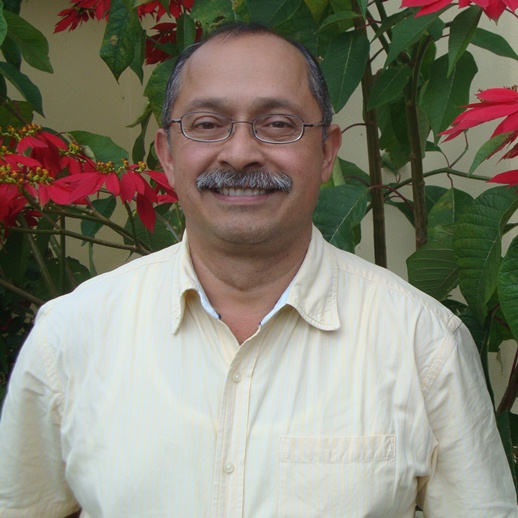Blog |
Week of Prayer for Christian Unity 2014 January 25-31, 2014 |
|||||||||||||||
Closing of the month of Prayer for Christian Unity, was held Friday January 31, 2014, at 6 pm in the Hall of Fine Arts "Alberto Domínguez Borraz", attended by church leaders from various denominations and an excellent presentation from the"Interfaith Choir of INESIN", San Cristobal de las Casas, Chiapas. |
|||||||||||||||
Perhaps Christ is divided? 1 Corinthians 1: 1-17 |
|||||||||||||||
Seek unity year round 2014 |
|||||||||||||||
In the northern hemisphere the Week of Prayer for the Unity of Christians and is traditionally celebrated from 18th to 25th of January. Those dates were proposed in 1908 by Paul Wattson to cover the days between the feast of St. Peter and St. Paul, which have a symbolic meaning. In the southern hemisphere, where January is summer vacation time, churches frequently take another date to celebrate the week of prayer, for example around Pentecost (suggested by the Faith and Order movement in 1926), which also represents another symbolic date for the unity of the Church on this occasion and for reasons to start the year together; we celebrate the Week of Prayer from 25 to the 31st of January, 2014, in our state of Chiapas. Bearing in mind this need for flexibility, we invite you to use these materials throughout the year to express the degree of communion that the Churches have already reached and to pray together to reach the full unity willed by Christ. As an organization, we have celebrated since 2008 until the present 2014, the Week of Prayer for the unity of Christians and it has been promoted in various Christian denominations in the areas of San Cristóbal de Las Casas, Tuxtla Gutierrez, Chiapa de Corzo, San Fernando, Venustiano Carranza, and in other communities in Chiapas. The prayer for peace and unity comes from the common and fraternal spirit that the Grand Master we inherited in his prayer of intercession, (John chap. 17) and as such, women and men, followers of the Master, we create those actions that contribute to walk together in diversity, and this celebration is one of them. |
|||||||||||||||
CONTEXT CHIAPANECAN |
|||||||||||||||
The name of Chiapas comes from the word Chiapan or Tepechiapan, the way they referred to the ancient Indian population of the Chiapas, and whose meaning is 'Hill of the Chia' or 'Water under the Hill'. Conquistadors, in founding two cities in the region, Chiapa of the Indians, and Chiapa of the Spaniards, adopted the name of the province of Chiapas for both. But Chiapas history is even older. |
|||||||||||||||
Chiapas belonged to the Kingdom of Guatemala, until its annexation to Mexico in 1821. Chiapas became the 19th state of Mexico on September 14, 1824 following the completion of a national referendum, because during the colonial period Chiapas was integrated in the Captaincy General of Guatemala. |
|||||||||||||||
Chiapas, like other states in southeastern Mexico, has a multiethnic and multicultural composition. The indigenous languages in the state is divided into Tzeltal, Tzotzil, Chol, Zoque, Tojolabal, Mame, Chuj, Kanjobal, Jacalteco, Lacandón Kakchikel, Mocho (Motozintleco), Quiché and Ixil. Some maintain traditional dress, and for others, prevails on the other criteria of self-identification as indigenous. |
|||||||||||||||
Chiapas is a rich state but with a largely poor population; |
|||||||||||||||
It has natural resources such as, water, minerals; gold, silver, oil, hydropower, agriculture, forestry, biofuels and biodiversity, ecotourism, (some of these are exploited by foreign concessions). |
|||||||||||||||
Chiapas ranks second in degree of marginalization and poverty at the national level, preceded by Guerrero and followed by Oaxaca, which are mainly located in the highlands and the jungle. 55.05% of the Chiapas population lives in municipalities with poverty and marginalization. Since the Zapatista uprising in 1994, there has been military statewide invoking the National Defense Plan. This authorizes the action of the armed forces to a "domestic enemy that threatens national security and sovereignty." In recent years, militarization remains high to date, the Army has justified its presence in Chiapas reasons unrelated to the EZLN, so they say. Implementation of the Law is for weapons and explosives, the flow of undocumented migrants, trafficking of arms and precious woods, social care for poverty and natural disasters, and organized crime. In conclusion, when we consider the many blessings and gifts God has given to our state and our people, we begin to recognize that we must treat each other with dignity and respect, and also to the land from which we live. This recognition has called us to confession and repentance, and seek new and sustainable land to inhabit (OIKOS). It has raised our consciousness about how God has blessed us all, and that no group can decide how to use state resources without hearing and without integrating the voices of our brothers and sisters from Chiapas. |
|||||||||||||||
Read INESIN News October 2014 |
|||||||||||||||
Calle Franz Blom, # 38-A |

